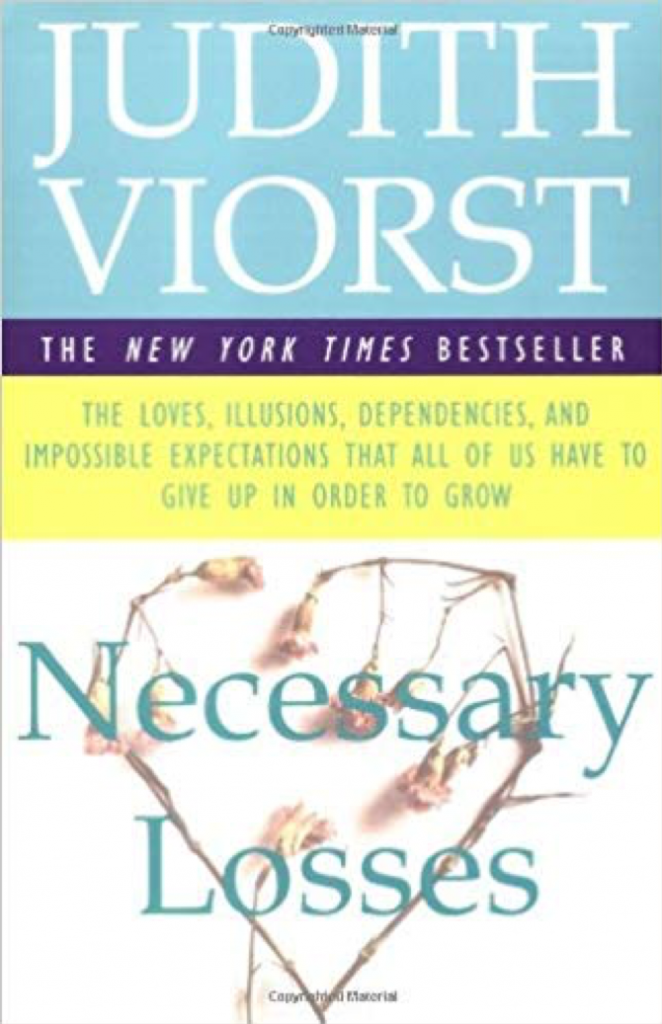Book blog
Books have always been a weakness of mine. Throughout my life I have been guilty of buying and keeping far too many books, as I like to read them in my own time and refer to them whenever I want. However, there’s a limit to the number of books I can actually accommodate in my (not very large) office, particularly as it also doubles up as a guest bedroom. So, I decided to bring at least one book a week to my local charity book shop. This is not easy for me; I am attached to my books and letting go of them feels like a kind of a loss – every time. In true Marie Kondo style, I will therefore thank each book for the pleasure it has given me and post a brief review on this blog.
Here goes:

Judith Viorst (1988) Necessary Losses. The loves, illusions, dependencies and impossible expectations that all of us have to give up in order to grow. London: Simon & Schuster, London.
I found Necessary Losses in a charity shop more than twenty years ago. The title and subtitle immediately spoke to me, as coping with loss was very much on my mind at the time. It has a great start: “We begin life with loss. We are cast from the womb without an apartment, a charge plate, a job or a car. We are sucking, sobbing, clinging, helpless babies. Our mother interposes herself between us and the world, protecting us from overwhelming anxiety. We shall have no greater need than this need for our mother” (p21).
That’s certainly telling it as it is! From this totally helpless beginning we gradually need to learn to become a separate self, and eventually look after ourselves. But not before we are ready! As Bowlby and others have shown, early separations can cause lifelong emotional scars. This is why it is so useful to help people look at and work through their early experience, as the clues to their depression, anxiety or relationship problems may often be found there.
By means of examples and case histories Viorst does a good job explaining therapeutic concepts in everyday language, including defence mechanisms (Freud), attachment theory and Winnicott’s concept of the good enough mother.
Thank you, Judith Viorst, I hope my well-thumbed and annotated copy may now be enjoyed by whoever buys it.
